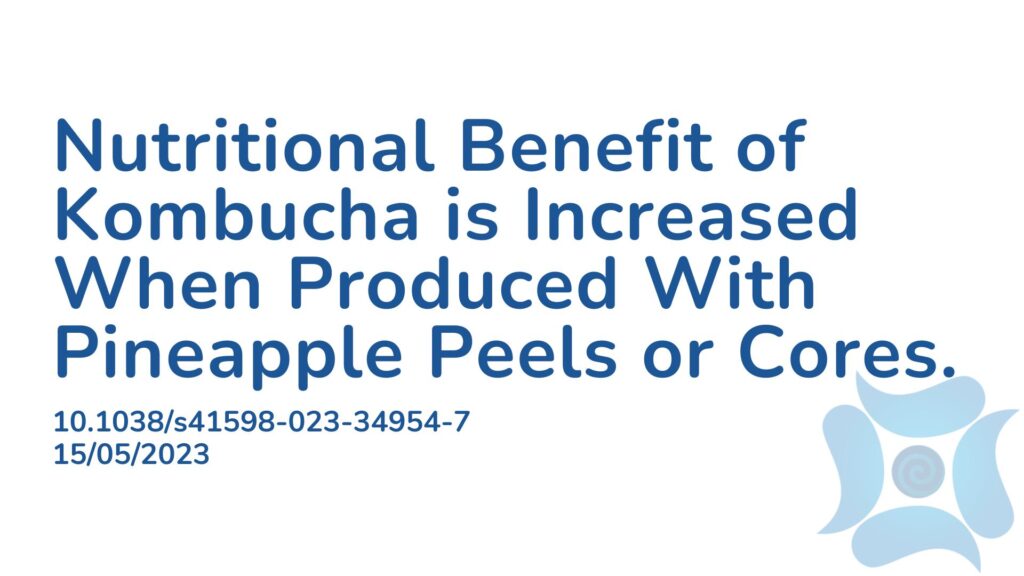Summary:
Kombucha is a fermented beverage made by microbial fermentation of bacteria, yeasts, sugar and tea and is one of the most popular health beverages consumed in many countries. Kombucha is known for its health benefits due to its varied metabolites such as polyphenols, organic acids, vitamins, amino acids, minerals, proteins, and enzymes. Traditionally, kombucha is made with a microbial element, tea and sugar, however this paper looks at whether the sugar can be replaced with other raw materials such as pineapple peels and/or cores to increase the biological and nutritional properties of the finished kombucha beverage. The results showed that when using pineapple peels and/or cores with black tea as a replacement to sugar, the final product contained higher amounts of beneficial substances such as polyphenols, organic acids, vitamins and minerals. The anti-oxidant activity was also higher. This study therefore shows that pineapple peels and cores exhibit high potential as a supplement for kombucha production with black tea.
Abstract:
Several raw materials have been used as partial supplements or entire replacements for the main ingredients of kombucha to improve the biological properties of the resulting kombucha beverage. This study used pineapple peels and cores (PPC), byproducts of pineapple processing, as alternative raw materials instead of sugar for kombucha production. Kombuchas were produced from fusions of black tea and PPC at different ratios, and their chemical profiles and biological properties, including antioxidant and antimicrobial activities, were determined and compared with the control kombucha without PPC supplementation. The results showed that PPC contained high amounts of beneficial substances, including sugars, polyphenols, organic acids, vitamins, and minerals. An analysis of the microbial community in a kombucha SCOBY (Symbiotic Cultures of Bacteria and Yeasts) using next-generation sequencing revealed that Acetobacter and Komagataeibacter were the most predominant acetic acid bacteria. Furthermore, Dekkera and Bacillus were also the prominent yeast and bacteria in the kombucha SCOBY. A comparative analysis was performed for kombucha products fermented using black tea and a fusion of black tea and PPC, and the results revealed that the kombucha made from the black tea and PPC infusion exhibited a higher total phenolic content and antioxidant activity than the control kombucha. The antimicrobial properties of the kombucha products made from black tea and the PPC infusion were also greater than those of the control. Several volatile compounds that contributed to the flavor, aroma, and beneficial health properties, such as esters, carboxylic acids, phenols, alcohols, aldehydes, and ketones, were detected in kombucha products made from a fusion of black tea and PPC. This study shows that PPC exhibits high potential as a supplement to the raw material infusion used with black tea for functional kombucha production.
Article Publication Date: 15/05/2023
DOI: 10.1038/s41598-023-34954-7



